We may receive a commission when you use our affiliate links. However, this does not impact our recommendations.
If you only go to retailers for your project lumber, it’s time to branch out. I did. Here’s what I learned and what I got, as a woodworker, from the trip.
You probably know that sawmills are where trees get transformed into rough lumber. Rough lumber is cheaper and, in many cases, more interesting for woodworkers than fully dimensioned and planed boards.
Sawmills are places (beautiful places, as you can see in the above photo) but the word “sawmill” also refers to the cutting machine itself. Many of these machines are portable, meaning the operator can take it to a logging site and saw boards on the spot. The sawmill I visited today, Dewey’s Lumber, featured a portable machine that the owner (Dewey) had made into a stationary tool after his business grew to be an ongoing concern.
I’m fascinated with the workings of both the machine and the business. I can’t possibly summarize the operation of the machine in one blog post, nor would I try without knowing a little more about it, but the following video should give you an idea.
The business side of a typical sawmill is possibly more relevant for woodworkers. Dewey explained to me how his business had started with a single client looking for framing pine, and quickly grew when he decided to specialize in a lesser known wood, cedar. By specializing, many sawmills are able to drive costs down – and some of them are willing to pass those savings on to their customers. You also get the chance to hand pick the boards for your projects.
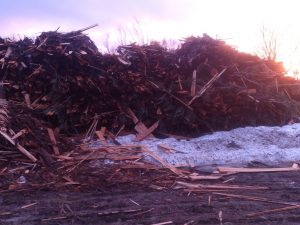 The bottom line is that I saved about 50% on the cedar I needed by going straight to the source. I did have to drive a bit farther, compared to a trip to my local retail lumberyard, but I figure that cost is offset by the beautiful views I got to see. I also heard a very funny story about the final destination for all the cedar offcuts – I’ll have to relate that story some other time.
The bottom line is that I saved about 50% on the cedar I needed by going straight to the source. I did have to drive a bit farther, compared to a trip to my local retail lumberyard, but I figure that cost is offset by the beautiful views I got to see. I also heard a very funny story about the final destination for all the cedar offcuts – I’ll have to relate that story some other time.
Please post comments below with your favorite local sawmills so that readers throughout the country can locate them!
–Dan Farnbach
p.s. – Speaking of 50% off, we are running a sale throughout our store beginning this weekend – 50% off most of our woodworking resources. Take advantage before the 21st!
Here are some supplies and tools we find essential in our everyday work around the shop. We may receive a commission from sales referred by our links; however, we have carefully selected these products for their usefulness and quality.



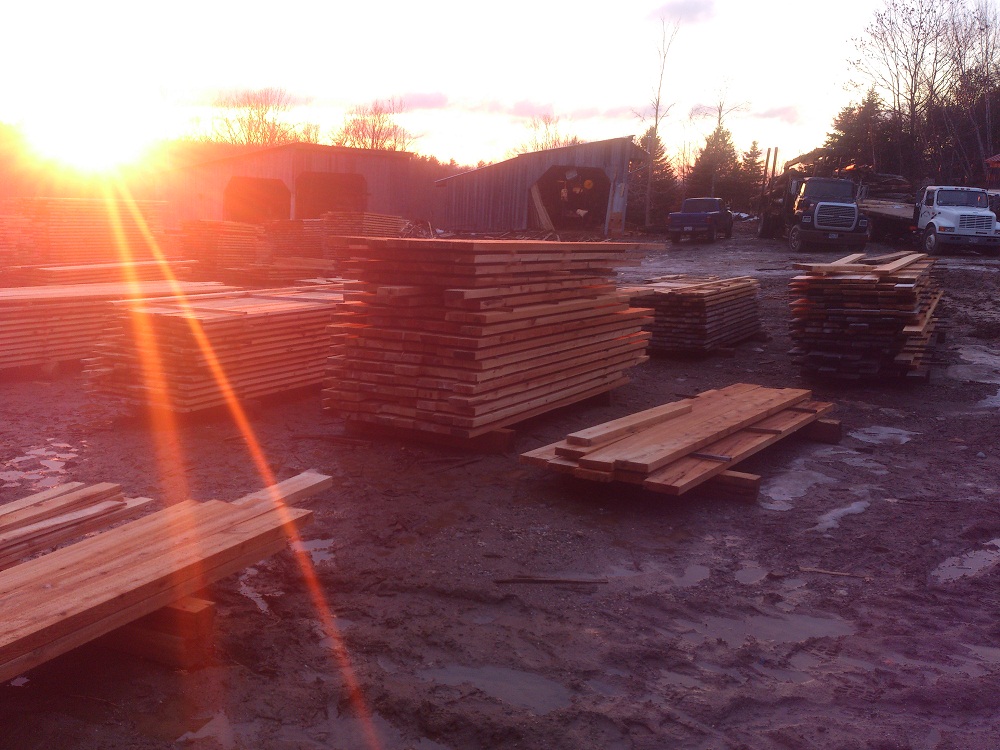
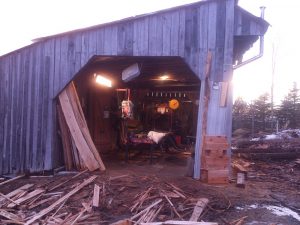





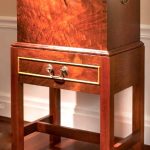
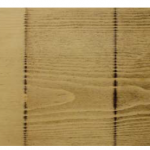
I know it’s an old post, but I wanted to add my local sawmill to this list:
More than a Sawmill, in Asher, Oklahoma.
They do have a simple website you can find with a quick websearch.
S2S oak for $1/bf, cedar, cottonwood, pecan and black walnut (only $4/BF for S2S) also available.
Highly recommended.
Two places I have worked with are:
Carl Middleton of B&K Timber Mill in Lucketts, VA. He has a portable sawmill, but will also pickup the logs and saw them back at his place. He also has a solar kiln if needed:
http://members.verizon.net/~vzentcoe/bktimbermill/index.html
Kuhn’s Tree Service in Jessup, MD. He is a little eccentric, but he has a poop-ton of logs on his site:
http://www.kuhnstreeservice.com/index.html
I remember when there were a dozen sawyers in my county, here in WV…but now, theres’ only 2 & both have portable bandmills limiting the size of log to 22″…I have several logs much larger that need sliced,but don’t want the waste from trimming-to-fit… not aware of any sawyer that still uses round blades anywhere remotely close enough to justify transport costs. sawmills are a dying breed, it appears.
If you like sawmills check out the one I drop into for pine and cedar. Run by the Waite’s farming family out here in Brighton, Ontario in Canada. Jeff is a great fellow and always has a good story to tell.
Check it out here http://taylorbenchworks.blogspot.ca/2011/05/trip-to-jeffs-family-sawmill.html
Enjoy.
Ken
The best specialty lumber sawmill in the northeast, and quite possibly the country, is Berkshire Hardwoods. They have a fantastic selection of wide slabs from all over the world, use a vaccuum kiln for thick lumber, and ship anywhere in the USA. I live in wisconsin and order slabs off their website, but I try to visit in person annualy. The trip is more than worth the airfare.
Would it be possible to publish a list of sawmills in the SW Ohio region. The only one I know of is on Clough Pike next to Mott’s near the Hamilton / Clermont border. I don’t even know if they are still in business.
Any readers who would like to post their favorites?
What do you do about dry lumber ready to use?
I grew up in a farming community in southwest Ohio. We had two properties, one of about 100 acres and another about 275.
Besides farming and his cattle, my father also loved woodworking and spent as much time as he could in his workshop.
We had a gentleman several miles up the road who had a “hobby” sawmill. Being a farmer also, he was otherwise busy but would mill logs as a side business.
We took a number of logs to him on several occasions and we would watch him do his magic. It was always interesting to see what board patterns would come out of a tree as it was happening.
I remember watching the progress on a drop leaf table that my father rebuilt using some black walnut from a tree we took down and had sawn locally. My dad started with one remaining leg, a frame but no top and ended up with a very pretty table.
From reading the article, I guess that lots of woodworkers don’t get to see the entire process in this way. I consider this memory another good thing about having grown up on a farm!
If you only saved 50% off the retail cost, you were ripped off. I pay .85 per board foot for ruff sawn
eastern red cedar. I then use my home built solar kiln to dry it. If you don’t kiln dry it, it will never be useful for furniture. If you go to a lumber yard eastern red cedar will cost you about $4.50 per board foot. Of course, in addition to drying the wood, you will have to joint, plane and saw the wood to finish size. I make cedar chests for income and if I had to pay $4.85 for wood, I wouldn’t make much money.
I typically buy 4/4, 8/4 and 16/4 sizes x random widths. There are 2 sawyers in my area speciallizin in eastern red cedar.
I have been using small mills for years. Some have kilns, some air dry, some do nothing but cut it and sticker it. The stuff in the box stores is dried at higher temperatures and can be brittle and only used when an immediate requirement is present. These small mills can also provide wood from the same tree which can be helpful when using wood that changes color. Cherry for example can be substantially different from tree to tree but when freshly milled are very close in color. When it darkens, the wood can go either dark redish brown or a substantial red.
The time came when I had to take down the Camphor tree in my front yard. It took a while to find a sawyer here in Southern California. I had the tree felled by a local, then paid the sawyer to pick up the logs from my property and take them to his mill where it was milled to lumber, stacked it and air-dried it for me. The tree was felled in 2010 and was allowed to dry for more than eighteen months. I then rented a Home Depot truck and brought it home. My yield was 461 board feet of a fairly rare, nicely workable hardwood. I would recommend this sawmill highly. It is Tule Peak Timber and their website is full of information about their operation.
http://www.kysawmill.com/
This sawmill is in Lawrenceburg Ky and always has top notch material available. Unlike most sawyers, who simply buy a mill and start selling wood, Gary has gone out of his way to educate himself on the best methods for cutting, seasoning and kiln drying his lumber. Best mill for woodworkers I have been to, in KY. Check the site for contact info, just be sure to call first as it is a one man operation.
Find a sawmill in your area:
http://www.woodmizer.com/us/ResourceCenter/FindaCustomSawyer.aspx
The only thing missing from blog entry is that people have to understand going to a sawyer or mill is not like going to a fine lumber dealer. There’s a lot of extra work that typically has to be done before the wood is worked. People have to make sure they have the tools to square up and plan the wood so they can use it. While you would think this is common sense. Howe many woodworkers actually own a planer, jointer, bandsaw, and table saw? Most own some of that, and you can make jigs that allow you to join and plan with routers and saws, but they need to also factor in the time it takes them to make usable wood.
All that said, there is nothing more enjoyable than taking raw slabs of wood and turning it into dimensioned wood that can be used on projects.
I haven’t gone to a mill to purchase wood, but isn’t the downside to going to the saw mill for your wood is that the wood has not been dried (air or kiln)? If that is true, then wouldn’t the wood need to sit for about a year (assuming 1” think material) prior to start working it. Also, wouldn’t the drying process result in some of the boards warping, twisting, or bowing.
Thanks ESINCOX for the info, I live in the St. Charles area and will have to look into them.
Bagdad Lumber in Bagdad, KY. Ron Harris is the proprietor, and is very accessible and responsive to inquiries.
http://www.bagdadlumber.com
If you live anywhere near northeast Pennsylvania, I recommend stopping at Mike Peters’ Shady Lane Tree Farm in Emmaus. It’s a small backwoods shop with excellent stock. When I lived near there, I’d drive over for cherry for furnituremaking and maple, walnut and other species for turning. Mike sometimes has specialty pieces too. I bought a nearly knot-free 8/4 slab of English Walnut that I turned into several nice bowls and platters. And he sold me a huge natural-edged chunk of cherry burl that was so sweet I couldn’t bear to cut it up. I eventually carved it a bit and turned it into a wall hanging.
My problem is finding the d**n things. Typically they don’t have much of a web presence. As for me, I am willing to host a web directory if I had the data.
In the St. Louis/St. Charles Missouri area, Scott Wunder, owner of Wunder Woods, is a great local sawyer who has a large selection of wood and charges very reasonable prices.
http://wunderwoods.wordpress.com/
Only slight farther away, in Mexico, Missouri, is Greener Lumber, owned by Rich Petty. But this isn’t “local” wood; Rich salvages sinker logs from rivers in Belize and mills them into lumber and kiln dries them in his shop in Mexico, MO.
http://store.greenerlumber.com/
Tell me you didn’t drive up to Liberty and leave town without stopping by Liberty Tools??!! Sawmills are a great resource for the non commercial, domestic species that are tough to find at a dealer. They are also great places to go for air dried and green material and super wide, live edge stock since usually these smaller mills saw for yield and not to meet a certain commercial spec. You may or may not be able to get it kiln dried so don’t assume the wood is fully seasoned. You can pretty much guarantee good conversation however. My favorite local places are The Frank Thomas Sawmill, in Fallston, MD and The Hopkins Family Woodworks in Forest Hill, MD. I built my Roubo from Ash sourced almost exclusively from Frank Thomas and I have gotten some nice wide Walnut and Cherry from Hopkins. The Woodmizer web site also has an “owner finder” to help locate micro mills as well. Finally if you are a turner or Follansbee or Galbert acolyte, don’t forget your local tree service